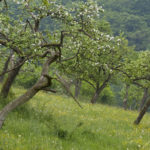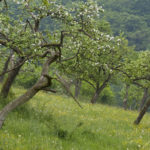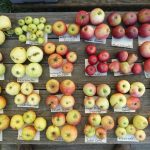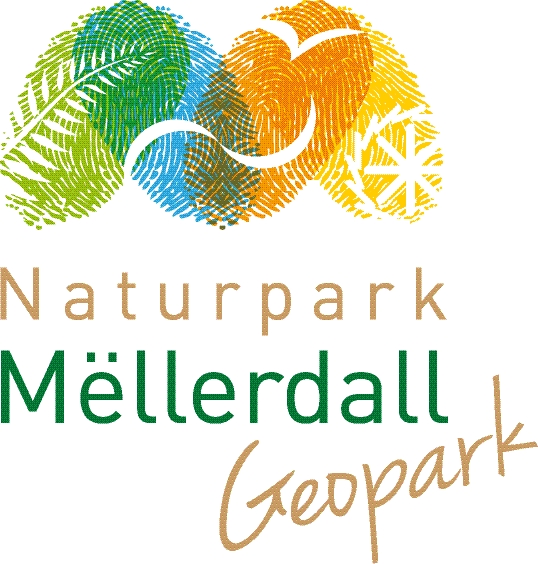Case Study
Maintenance programme for the conservation and renaturation of orchard meadows. Survey of fruit variety diversity
Contact name
Mikis Bastian
Institution name
Mëllerdall Nature and Geopark
Region & country
Mëllerdall, Luxembourg
Summary
Orchard meadows are among the most valuable and species-rich habitats in the Mëllerdall Nature and Geopark. The Bongerten maintenance programme (Bongerten is the Luxembourg word for orchard meadows) has already been running for several years in the nature park municipalities. Its aim is to plant new trees or preserve existing trees by means of appropriate care and thus to boost the orchard meadow stocks.

Orchard Meadows
Mëllerdall Nature and Geopark

Orchard meadows
Mëllerdall Nature and Geopark

Sub project: Survey of fruit variety diversity
Mëllerdall Nature and Geopark
Background of the project
The number of fruit trees in the nature park region declined by about three quarters during the 20th century. The consequence of the decline is a loss of biodiversity. Due to the drop in prices for orchard meadow fruit, it was no longer worthwhile for regional fruit processors to tend the stocks. But orchard meadows still characterize the landscape of the Nature Park, despite the sharp decline. Today there are still about 40,000 fruit trees in the region (256 km2).
The economic interest in old fruit varieties has increased with the emergence of local and regional marketers, but the old fruit trees are disappearing with the decline of orchard meadows. When there’s a market for orchard meadow products, people will again be willing to have fruit trees tended and planted. At the end of the day, management of orchard meadows is only sustainable if there is a market for fruit.
Solution and actions taken
In order to preserve the region’s typical fruit varieties, the local varieties and their frequency of occurrence were surveyed in some of the municipalities to plan planting campaigns and propagate rare varieties. Orchard meadows were accurately mapped to implement tree care programmes and plan them better, but also to assess the stocks’ ecological importance; not all the Nature Park municipalities were surveyed, however. A practical training course was provided to ensure professional tree care.
- Survey of fruit variety diversity in the Mëllerdall Nature and Geopark (mapping and recording in national database)
- Multiplying and planting rare fruit varieties typical of the region
- Planting of young, and pruning of old, fruit trees to conserve the orchard meadow stocks
- Planting of variety orchard meadows (fruit trees with rare varieties)
- Informing residents about possible participation in the orchard meadow care programme.
Other institutions or parties involved
- Mëllerdall Nature and Geopark,
- Nature and Forest Agency,
- Ministry of the Environment,
- Climate and Sustainable Development,
- NaturService,
- natur&ëmwelt (Nature and environment),
- Natur a Mënsch (Nature and humans),
- Pépinières Martin Wahl,
- Eckhard Hustedt,
- Christof Engler,
- Lycée Technique Agricole,
- Forestalux,
- farmers and private landowners.
Results
Since the project began (in some municipalities already since 2002), a total of more than 5,500 trees have been pruned and about the same number planted. The measures are also reflected in the regional products: a real renaissance of traditional products, but also the emergence of new products can currently be observed. Thus the diversity of orchard meadows is reflected through a unique variety of tastes in the products.
Challenges
Shortage of know-how and skilled workers to provide professional tree care.
Lessons learned
Today, the orchard meadow care programme is running in all the Nature Park’s municipalities, albeit in different volumes and slightly different variants. In order to preserve orchard meadows, it would be good if the programme could continue at this level for a few more years.
Contact name
Mikis Bastian
Institution name
Mëllerdall Nature and Geopark
Website(s)
